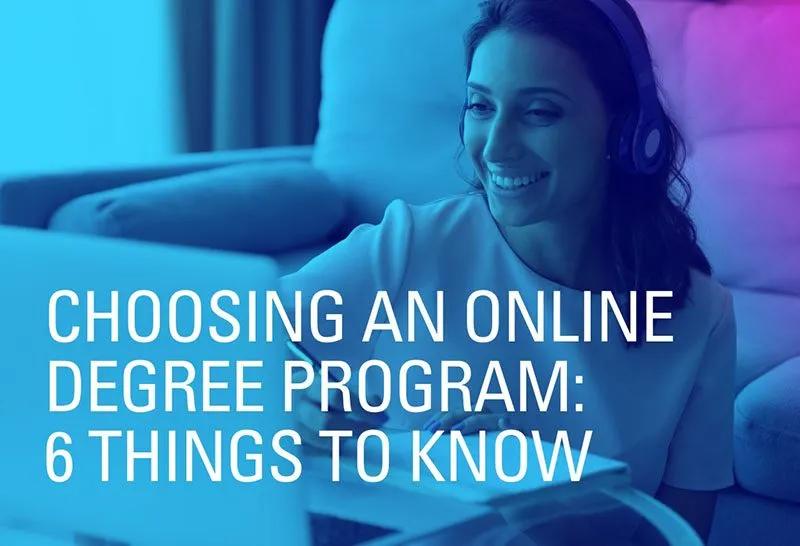Table of contents
Digital Security Tips for Online Students

Table of Contents
Ultimate Medical Academy (UMA) takes the digital security of our learners seriously. Whether you’re enrolled in one of our online healthcare programs, use the internet to complete the online portion of our Florida-based healthcare programs, or a student at another school who is concerned about protecting yourself online, we’re here to help. This begins with understanding why cyber safety is so important.
Importance of Digital Security (a.k.a. Internet Safety)
Should someone gain access to your social security number, they could steal your identity, your bank account or credit card numbers, and hurt you financially. Malicious actors can also take your passwords and sign into your accounts, potentially getting more of your private information or causing damage to others who use the same technology, device, or computer program.
This is why it is so important to take steps to keep your information out of the hands of unauthorized users. It helps protect you from having to deal with — and attempt to recover from — the effects of these types of situations.
Online Risks to Watch For
Cybersecurity threats can take many different forms. Being aware of what to look for can help you recognize when you may be targeted. It also enables you to respond in a way that reduces your online risk.
Some of the cyberthreats you may face, according to IBM, include:1
- Malware – software codes written to gain access to or infect your computer system, enabling the attacker to destroy or steal your information (examples: worms, spyware, ransomware, or a Trojan horse)
- Social engineering – manipulating you to take action that exposes confidential information (examples: phishing or sending you a fraudulent email, texts, or phone call; or domain name spoofing, which involves creating a fake website that looks like a real one to get you to enter sensitive information)
- Password attacks – when a cybercriminal tries to guess your passwords, finds a way to steal them, or manipulates you into providing them
Some cyber threats aren’t always easy to spot. You might get an email that looks like it’s from a friend or coworker, for example, only to learn after you responded with confidential information that they didn’t send it.
Or you might receive a text that appears to be from your educational institution asking you to verify your bank information to see if you qualify for financial aid. However, after taking the requested steps and supplying your account numbers, you find out that someone has gained access to your checking or savings account.
Note: UMA will never email or text you and ask for private information. If you receive this type of correspondence, reach out to us directly by calling the number on our website (888-205-2510) or completing our contact form. Don’t respond to the message or click any links it contains.
Cyber Safety Tips for Online Students
Developing and following internet safety practices can help keep you from falling victim to hackers and other cybercriminals. Here are a few internet safety tips for students enrolled in an online education program:
- Set a strong password for your school accounts. Simple passwords can be easy to remember, but they can also be easier for unauthorized users to guess. Microsoft recommends setting passwords that are at least 12 characters, with over 14 characters in length being better; a combination of letters, numbers, and symbols (not a word, person, character, product, or organization); different from passwords you use on other accounts; and difficult to guess.2
- Download anti-virus software. Using a virus protector can keep you from accidentally downloading malware to your computer. It works by checking email attachments and online links to make sure they’re safe. PC Mag provides a list of the best free antivirus software based on expert ratings and reviews, or you can purchase a virus protector from a company you trust.
- Think before clicking. When you get an email with links, don’t click on them without checking them out first — even if the email appears to be from a person or company you know. Scammers can send emails that look like they’re from a friend or business you regularly communicate with. So, before clicking a link, use your computer mouse to hover over it. This gives you a preview of where it would take you. If you don’t recognize the site, don’t click the link.
- Don’t respond to suspicious messages. If you suspect an email, text, or phone call is a scam, don’t respond to it. Don’t click any links, open any attachments, reply to the sender, or engage with them at all. Also, don’t forward the message to anyone else, potentially exposing them to the cyber threat.
- Be on the lookout for scammer tactics. Using the word “urgent” or asking that you respond quickly to avoid fines, penalties, or jail time is a tactic cybercriminals can use to get you to respond without thinking. If you get one of these messages and worry that failing to respond may be an issue, reach out to the organization or institution directly. They’ll tell you whether the message you received was real.
- Never give out personal information. If you receive digital correspondence asking for your password, bank information, or any other information that could be used to access your personal data or online accounts, do not provide it. Many schools, businesses, and governmental agencies will tell you they never send texts or emails requesting this type of information, so it is likely a scam.
- Do your own research. If a message gives you a phone number to call, don’t just do it; a cybercriminal could be on the other end of the line. Instead, look up the business’s number yourself by doing an online search and call to verify whether they sent the message. Alternatively, you can also sign into your online account for that organization, if you have one, and look for a message internally requesting the information.
- Trust your gut. No matter what type of digital correspondence you receive, if something feels off about it, trust your gut. Don’t reply directly, don’t click any links, and reach out to the sender through other means (such as by phone if you receive an email) to ask if they sent the message. It may take a little more time upfront, but it can also save you the time and frustration of having to deal with the effects of a cyberthreat.
UMA Cares About Your Online Safety
If you ever receive a message from UMA and aren’t sure whether it came from us or is a scam, reach out to us directly using the phone numbers listed on our website, in the Puma Den, or in your Courseroom.
Finally, if you think you are a victim of a cybercrime, the FBI recommends filing a complaint with the Internet Crime Complaint Center (IC3).3 You may also wish to contact your local law enforcement agency for further guidance.
FAQs
- What is digital security? It involves protecting or securing your private online information so it can’t be accessed by unauthorized persons. This includes using anti-virus software, setting strong passwords, and never giving out personal information via text, email, chat, or any other form of digital communication.
- What are the online risks that can affect student safety? Malware, social engineering (phishing), and password attacks can all be directed at students to steal their information, obtain access to their online accounts, or gain access to their school’s computer system — which may provide access to all the other students’ information. Taking steps to protect yourself from these risks can also help protect other learners.
1 IBM. Types of cyberthreats. https://www.ibm.com/think/topics/cyberthreats-types
2 Microsoft. Create and use strong passwords. https://support.microsoft.com/en-us/windows/create-and-use-strong-passwords-c5cebb49-8c53-4f5e-2bc4-fe357ca048eb
3 FBI. The Cyber Threat. https://www.fbi.gov/investigate/cyber
Request Information
Talk with us. Start your journey.
Complete this form and we'll call you to explore options at UMA and answer your questions. We'll also email you info on how to get started. We're with you at every step!
Request Information
Talk with us. Start your journey.
Complete this form and we'll call you to explore options at UMA and answer your questions. We'll also email you info on how to get started. We're with you at every step!
About the Author
 Christina DeBusk
Christina DeBuskChristina DeBusk is a freelance writer who has been providing health and wellness content to healthcare organizations such as the American Chiropractic Association and International Sports Sciences Association (ISSA) since 2011. She obtained her Bachelor of Science in Sociology from Central Michigan University, minoring in psychology. She has also earned several ISSA certifications, including Certified Personal Trainer and Certified Nutrition Specialist, achieving the status of Elite Trainer.
Related Content


